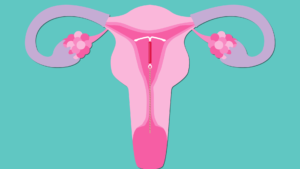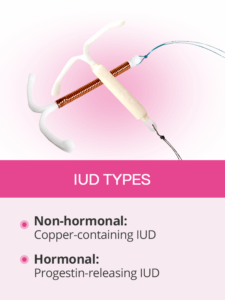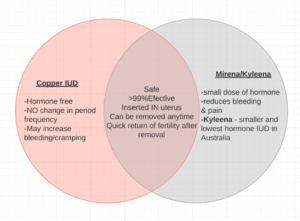
Lactation Guidance for Stress-Free Nursing
Introduction Breastfeeding is a beautiful and natural way to nurture your baby, but it can sometimes come with challenges. At Signora

At Signora Maternity Clinic in Bangalore, Dr. Sushma Harish provides expert advice and care for women seeking effective birth control options. One such option is the intrauterine device (IUD), a small, T-shaped device placed in the uterus to prevent pregnancy. In this guide, we will discuss what an IUD is, how it works, the different types, and the benefits and risks involved.

There are two main types of IUDs: copper IUDs and hormonal IUDs.

IUDs are one of the most popular long-term contraceptive methods worldwide. In India, their use has increased significantly as women seek reliable, low-maintenance birth control. IUDs are especially recommended for women who want effective contraception without the need for daily attention, making it an attractive choice for busy women.
At Signora Maternity Clinic, Dr. Sushma Harish helps patients decide if an IUD is the right option based on their individual needs.
Both types are over 99% effective at preventing pregnancy, making them one of the most reliable birth control options available at Signora Maternity Clinic.
Click Here to Know more: Copper T Treatment in Bangalore
IUDs are long-lasting, making them convenient for women who want continuous protection without frequent visits to the doctor. Here’s a table outlining the duration of effectiveness for each type of IUD:

|
IUD Type |
Duration of Use |
|
Copper IUD |
Up to 10 years |
|
Mirena (Hormonal) |
5-7 years |
|
Skyla (Hormonal) |
3 years |
|
Liletta (Hormonal) |
5 years |
At Signora Maternity Clinic, Dr. Sushma Harish will guide you on choosing an IUD that matches your contraceptive needs and lifestyle.
The IUD insertion procedure is a quick and simple process. It is an outpatient procedure, meaning you can visit the clinic and return to your routine immediately after. Most women find the process painless, with no need for anesthesia. The IUD provides long-term birth control, making it a highly effective and convenient option for women. At Signora Maternity Clinic, our experienced doctors ensure a safe and smooth procedure.
The insertion of an IUD is a simple procedure performed at the clinic by Dr. Sushma Harish.
Mild discomfort during insertion
Potential spotting or cramping post-insertion
Rarely, the IUD may be expelled or shift in place
Small risk of infection after insertion
Does not protect against sexually transmitted infections (STIs)
If you experience any of the following after IUD insertion, contact Dr. Sushma Harish at Signora Maternity Clinic immediately:
At Signora Maternity Clinic in Bangalore, Dr. Sushma Harish is committed to helping women choose the best birth control method for their needs. If you are considering an IUD or want to learn more about your options, schedule a consultation today to discuss how an IUD can benefit you. Contact us now to book your appointment!
Discover comprehensive women’s healthcare services at Signora Maternity, our premier fertility clinic in Bangalore. From Pap smear and dilation and curettage treatments to high-risk pregnancy care and postnatal support, Signora Maternity offers a range of specialized services. Our expert team provides personalized care for menstrual disorders, fertility issues, repeated abortions, antenatal care and post-menopause concerns. Additionally, we offer HPV vaccination, Mirena intrauterine IUD insertion, and menstrual cup consultations. Trust Signora Maternity for top-notch preconception counseling and female infertility treatments. Experience excellence in maternity care at Signora Maternity, known as the best maternity hospital in Bangalore. Visit us for UTI and PCOD treatments tailored to your needs. Your health and well-being are our priority. Schedule an appointment today.
Visit Our Maternity clinic Today
Name: Signora Maternity and Gynecology Clinic
Address: 396, 1st floor , 8th main, 7th Cross Rd, BTM 2nd Stage, Bengaluru, Karnataka 560079
Contact number: 6362141790

Introduction Breastfeeding is a beautiful and natural way to nurture your baby, but it can sometimes come with challenges. At Signora

Introduction Prenatal care is one of the most important steps in ensuring a healthy pregnancy. It involves regular check-ups and medical

Introduction Pregnancy is a unique and exciting journey for every woman. However, age can play a significant role in shaping this